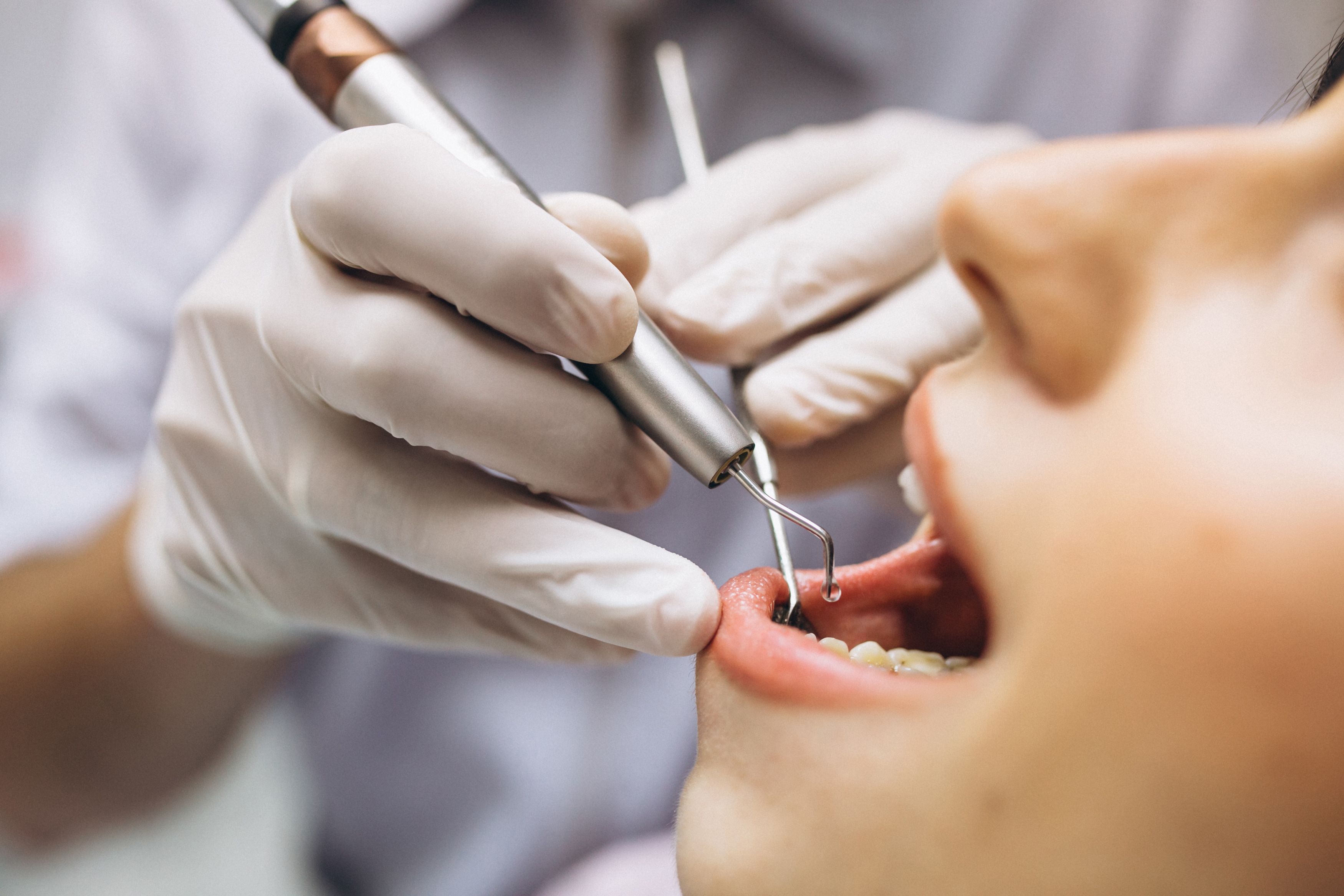October 31, 2025
Is Mouthwash Helping or Hurting Your Oral Microbiome?

Key Points
- Your mouth contains over 700 species of bacteria, most of which are beneficial for oral and overall health.
- Traditional alcohol-based mouthwashes can disrupt the oral microbiome by killing both harmful and beneficial bacteria.
- The oral microbiome plays a crucial role in nitric oxide production, which affects blood pressure and cardiovascular health.
- Overuse of antiseptic mouthwash may increase the risk of certain health conditions by eliminating protective bacteria.
- Beneficial oral bacteria help prevent cavities, gum disease, and bad breath naturally.
- Choosing the right mouthwash and using it appropriately can support rather than harm your oral microbiome.
- Silver State Smiles provides personalized guidance on maintaining a healthy oral microbiome for optimal dental health.
Overview
For decades, mouthwash has been marketed as an essential part of oral hygiene, promising fresh breath and a cleaner mouth. But emerging research reveals a more complex story about how these products interact with the delicate ecosystem of bacteria living in your mouth.
Your oral microbiome is a thriving community of microorganisms that plays a vital role in maintaining not just oral health, but your overall wellbeing. While some bacteria cause cavities and gum disease, many others protect your teeth, support your immune system, and even influence your cardiovascular health.
This guide from Silver State Smiles explores the relationship between mouthwash and your oral microbiome, helping you make informed decisions about which products support your dental health without disrupting the beneficial bacteria your mouth needs to thrive.
Understanding Your Oral Microbiome
What Is the Oral Microbiome?
Your oral microbiome is the collection of bacteria, fungi, viruses, and other microorganisms that naturally inhabit your mouth. This ecosystem includes over 700 different bacterial species, with billions of individual microorganisms coating your teeth, gums, tongue, and cheeks.
While we often think of bacteria as harmful, the majority of oral bacteria are either beneficial or neutral. These microorganisms work together to maintain a balanced environment that protects against disease-causing pathogens.
Key Functions of Beneficial Oral Bacteria
- Competing with harmful bacteria for space and nutrients
- Producing antimicrobial substances that fight pathogens
- Supporting immune system function in the mouth
- Maintaining proper pH levels that protect tooth enamel
- Converting dietary nitrates into nitric oxide for cardiovascular health
- Breaking down food particles and preventing plaque buildup
A healthy oral microbiome maintains balance between beneficial and potentially harmful bacteria. When this balance is disrupted, a condition called dysbiosis occurs, potentially leading to cavities, gum disease, and other health problems.
The Problem with Antiseptic Mouthwashes
Most commercial mouthwashes contain powerful antiseptic ingredients designed to kill bacteria. The most common active ingredients include alcohol, chlorhexidine, cetylpyridinium chloride, and essential oils.
While these ingredients effectively eliminate harmful bacteria that cause bad breath and gum disease, they also destroy beneficial bacteria that protect your oral health. This non-selective approach creates an imbalanced microbiome that may have unintended consequences.
How Antiseptic Mouthwashes Disrupt the Microbiome
Alcohol-based mouthwashes, typically containing 18-26% alcohol, create a harsh environment that kills bacteria indiscriminately. When you rinse with these products, they eliminate both the pathogens you want to remove and the beneficial bacteria you need to keep.
After using antiseptic mouthwash, your oral microbiome doesn't simply return to its previous balanced state. Harmful bacteria often recolonize faster than beneficial species, potentially leaving your mouth more vulnerable than before.
Research shows that regular use of antiseptic mouthwash can reduce bacterial diversity in the mouth. Lower microbial diversity is associated with increased risk of oral diseases and systemic health conditions.
The Nitric Oxide Connection
One of the most significant discoveries about the oral microbiome involves its role in producing nitric oxide, a molecule crucial for cardiovascular health.
Beneficial oral bacteria convert nitrates from vegetables into nitrite, which your body then converts to nitric oxide. This compound helps regulate blood pressure, improve blood flow, and support overall cardiovascular function.
Studies indicate that using antiseptic mouthwash twice daily can significantly reduce oral bacteria's ability to produce nitric oxide, potentially impacting blood pressure regulation. Some research has found associations between regular mouthwash use and increased risk of hypertension and cardiovascular problems.
This connection highlights how disrupting your oral microbiome may have effects far beyond your mouth, influencing your overall health in unexpected ways.
When Mouthwash Can Be Beneficial
Despite concerns about microbiome disruption, mouthwash remains valuable for treating certain dental conditions when used appropriately and temporarily.
Situations Where Mouthwash May Be Recommended
Periodontal disease treatment often requires prescription-strength antimicrobial mouthwash like chlorhexidine to control infection and inflammation. These therapeutic rinses are typically used for limited periods under dental supervision.
After oral surgery or dental procedures, antiseptic mouthwash can prevent infection during the healing period when normal brushing and flossing may be difficult or uncomfortable.
For patients with severe gum disease, mouthwash serves as an adjunct to professional cleanings and improved home care, helping to reduce bacterial load while the gums heal.
Individuals with dry mouth, weakened immune systems, or orthodontic appliances may benefit from specific mouthwash formulations that address their unique challenges without completely disrupting the microbiome.
Choosing Microbiome-Friendly Options
Not all mouthwashes are created equal. Several types support oral hygiene without destroying beneficial bacteria.
Microbiome-Friendly Mouthwash Characteristics
- Alcohol-free formulations eliminate the harsh antiseptic effect while still providing fresher breath and some antibacterial benefits through gentler ingredients.
- Probiotic mouthwashes introduce beneficial bacteria strains that help maintain or restore a healthy oral microbiome balance. These products work with your natural defenses rather than against them.
- pH-balanced rinses help maintain the slightly alkaline environment that protects tooth enamel and supports beneficial bacteria without killing microorganisms.
- Natural mouthwashes using ingredients like xylitol, aloe vera, and mild essential oils provide antimicrobial benefits while being less disruptive to the overall microbial community.
- Remineralizing rinses with fluoride or hydroxyapatite strengthen teeth and can be used safely without significantly disrupting the microbiome.
Building a Microbiome-Friendly Oral Care Routine
Prioritize Mechanical Cleaning
The most effective way to maintain oral health while protecting your microbiome is through thorough mechanical cleaning rather than chemical antimicrobials.
Brushing twice daily with proper technique physically removes plaque and food particles without disrupting the balanced bacterial community in your mouth. Use a soft-bristled toothbrush and fluoride toothpaste, spending at least two minutes covering all tooth surfaces.
Daily flossing removes debris and bacteria from between teeth where brushes cannot reach. This mechanical removal is more effective and less disruptive than relying on mouthwash alone.
Tongue cleaning with a scraper or brush removes bacteria, food particles, and dead cells that contribute to bad breath, reducing the need for antiseptic rinses.
Support Your Microbiome Through Diet
What you eat significantly influences which bacteria thrive in your mouth.
Microbiome-Supporting Dietary Choices
Foods rich in fiber, particularly vegetables, provide nitrates that beneficial oral bacteria convert into health-promoting compounds. Leafy greens, beets, and celery are excellent choices.
Probiotic foods like yogurt, kefir, and fermented vegetables introduce beneficial bacteria that can colonize your mouth and support a healthy microbiome.
Limiting sugar and refined carbohydrates reduces fuel for harmful cavity-causing bacteria, allowing beneficial species to maintain dominance.
Drinking plenty of water throughout the day helps wash away food particles and maintains saliva production, which naturally protects your oral microbiome.
Signs Your Oral Microbiome May Be Imbalanced
Recognizing Dysbiosis
Several symptoms may indicate your oral microbiome has become disrupted, possibly from overuse of harsh mouthwash or other factors.
Common Signs of Oral Dysbiosis
Persistent bad breath despite good hygiene habits often indicates an overgrowth of odor-causing bacteria that have replaced beneficial species.
Recurrent cavities or gum inflammation may signal that protective bacteria are no longer keeping harmful species in check.
Dry mouth or changes in taste can accompany microbiome disruption, as beneficial bacteria contribute to normal oral sensations and saliva function.
Increased sensitivity to certain foods or frequent oral infections suggest the protective bacterial barrier has been compromised.
White patches, unusual coating on the tongue, or persistent mouth sores may indicate fungal overgrowth that occurs when bacterial balance is disrupted.
If you experience these symptoms, schedule a consultation with Silver State Smiles to evaluate your oral health and develop a personalized care plan.
The Role of Professional Dental Care
Working with Your Dentist
Maintaining a healthy oral microbiome requires partnership with dental professionals who understand the nuances of oral ecology.
Silver State Smiles takes a comprehensive approach to oral health that considers your unique microbiome needs alongside traditional preventive care.
What Professional Care Provides
Regular dental cleanings remove hardened plaque and calculus that you cannot eliminate at home, preventing harmful bacteria from establishing permanent colonies.
Professional assessment identifies early signs of microbiome imbalance before they develop into serious oral health problems.
Personalized recommendations for oral care products ensure you use mouthwash and other products appropriate for your specific situation.
Treatment planning addresses underlying issues affecting your oral microbiome, such as dry mouth, diet, medications, or systemic health conditions. Education about oral microbiome health empowers you to make informed decisions about daily care practices.
Making the Right Choice for Your Oral Health
The relationship between mouthwash and your oral microbiome isn't simply good or bad. The impact depends on the type of mouthwash, frequency of use, your individual oral health status, and how it fits into your overall hygiene routine.
For most people, limiting antiseptic mouthwash use and focusing on thorough mechanical cleaning provides the best balance of fresh breath, disease prevention, and microbiome health. When mouthwash is necessary, choosing microbiome-friendly formulations minimizes disruption while still providing benefits.
If you have specific oral health concerns, are currently using mouthwash regularly, or want personalized guidance about supporting your oral microbiome, the team at Silver State Smiles is here to help.
Understanding your oral microbiome represents the cutting edge of dental health. By working with knowledgeable professionals and making informed choices about oral care products, you can maintain a healthy mouth that supports not just your smile, but your overall wellbeing.
Schedule a consultation today to discuss how to optimize your oral care routine for a thriving microbiome and lasting dental health.

Schedule Your Visit Today
Experience exceptional dental care in a comfortable, state-of-the-art environment. New patients welcome!
